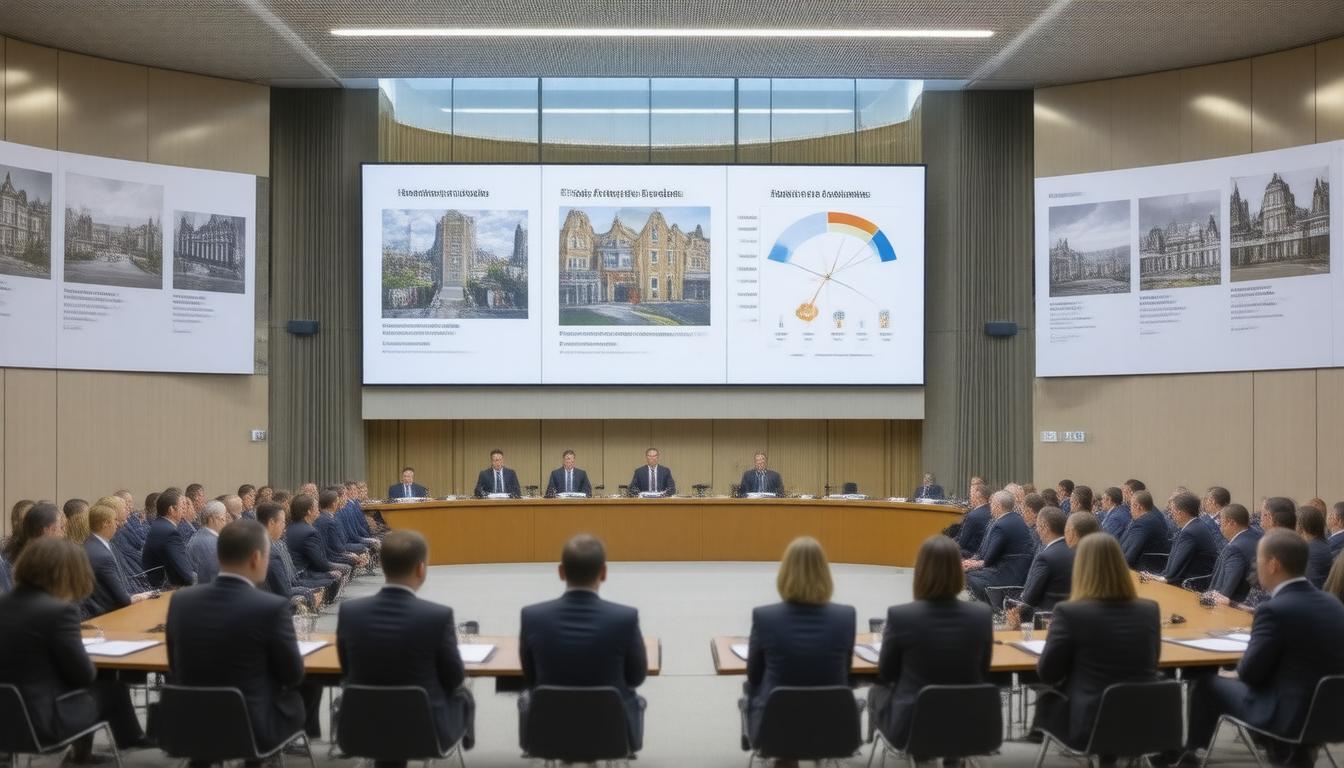The Welsh Government has unveiled proposals to reform the Council Tax system as it pertains to Houses in Multiple Occupation (HMOs). This initiative, aimed at addressing long-standing concerns regarding unfair billing practices, proposes to redefine HMOs as single dwellings for Council Tax purposes, thereby simplifying payments for landlords and tenants alike. Currently, the existing system divides the council tax obligations by the number of rooms in an HMO, which often results in disproportionate payments for renters compared to traditional single-family homes. By consolidating tax obligations across an entire HMO, the government aims to create a fairer and more equitable taxation environment, closely mirroring a recent policy shift by the English government. Stakeholders, including Propertymark, have welcomed the proposed changes, indicating the need for immediate action to mitigate the financial burden on renters, especially those from low-income backgrounds or those receiving means-tested benefits.
Key Takeaways
- The Welsh Government’s draft legislation aims to redefine HMOs for Council Tax, treating them as single dwellings to reduce financial burdens on tenants.
- This reform seeks to create a fairer billing system, consolidating council tax payments for landlords and redistributing costs among residents.
- The proposed changes are expected to benefit low-paid renters and those on benefits, aligning with similar reforms in England.
Understanding the Proposed Changes to HMO Council Tax
In response to ongoing concerns regarding the fairness of the current council tax system for Houses in Multiple Occupation (HMOs), the Welsh Government is considering draft legislation that would redefine HMOs as single dwellings for council tax purposes. This proposal stems from complaints that the existing model, which charges council tax on a per-room basis, leads to disproportionately high tax liabilities for contract holders compared to other residents within the same locality. The government contends that this disaggregation results in an unfair and inconsistent billing infrastructure (Welsh Government, 2024).
If the legislation is enacted, it aims to streamline the council tax payment process, enabling landlords to manage and pay council tax for the entire property collectively. This would subsequently allow for a more equitable distribution of costs among tenants. Propertymark, a prominent organization representing lettings and property professionals, voices strong support for these proposed reforms, calling for urgent changes to rectify the existing billing disparities that impact low-paid contractors and individuals on means-tested benefits, particularly during periods of economic difficulty, including the current inflationary climate (Propertymark, 2024).
This initiative mirrors recent similar actions taken by the English government, which followed extensive lobbying from various industry stakeholders advocating for adjustments to the council tax rules governing HMOs (Local Government Association, 2024). Furthermore, there is an emphasis among campaigners for local authorities to reconsider the charging practices applied when tenants vacate properties without leaving forwarding addresses. Such measures are expected to alleviate financial pressures on both landlords and tenants, contributing to a more balanced rental market in Wales.
Impact on Renters and Landlords
The proposed changes have sparked a broader conversation about the implications for both renters and landlords in Wales. By treating HMOs as single dwellings, the government aims to reduce the financial burden on tenants, particularly those with lower incomes. With many individuals residing in shared accommodations due to rising housing costs, this reform could significantly lessen their tax liabilities, allowing for more disposable income (Shelter Cymru, 2024). A key component of this initiative focuses on addressing the inequities faced by renters in the rental market, giving them clearer expectations regarding their financial obligations. Conversely, landlords stand to benefit from the streamlined tax process, as consolidated payments for HMOs could simplify their financial planning and mitigate instances of late payments or disputes with tenants about tax liabilities. The Welsh Government’s consideration of these reforms exemplifies an evolving landscape where policies are increasingly attuned to the realities of housing pressures and their ripple effects on communities (Adams, 2024). Successful implementation of these measures could establish a more stable rental environment, fostering better relationships between landlords and tenants while encouraging investment in the rental sector without compromising affordability.





